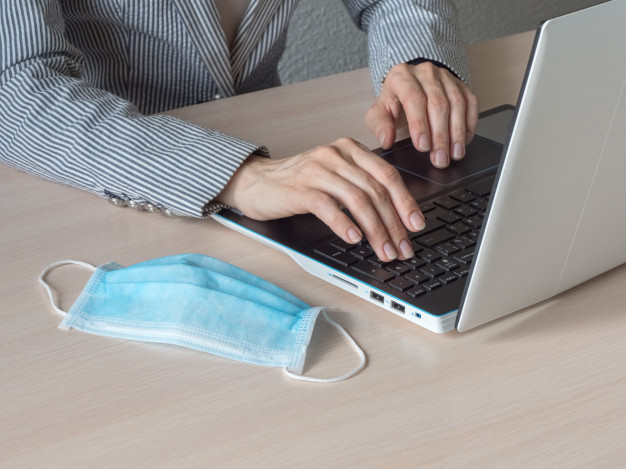There’s no denying that the world is in unprecedented times. As the novel coronavirus and the disease it causes — COVID-19 — continue to spread both globally and domestically, virtually no one in the world remains untouched by the effects. While frightened consumers are desperate to find ways to stay healthy and protect their livelihoods, cybercriminals are finding ways to profit from this fear.
Some consumers are purchasing equipment advertised as able to cure or prevent coronavirus infection. Others, with good intentions, are donating money to what they believe are legitimate charities, but are in fact scams created by fraudsters. Payments companies are also vulnerable, as many companies have been forced to move operations fully online to comply with government mandated social distancing orders.
Understanding that these bad actors will continue to exploit the ongoing pandemic, LegitScript has made tracking and stopping these cybercriminals its top priority. It recently released a comprehensive 23-page guide that describes prevalent forms of cybercrime related to the pandemic and identifies red flags to keep in mind.
Common Types of Illicit Activity Related to COVID-19
There are five major types of illicit activity related to coronavirus: high-risk domain name registrations, problematic diagnostics and supplies, bogus cures and treatments, rogue internet pharmacies, and scams. Note that LegitScript’s guide goes much more in-depth in providing descriptions, examples, and ways to identify each type of fraudulent activity:
1. High-risk domain name registrations
Scammers have rushed to register domain names that allow them to defraud consumers and sell questionable products and services. These domain names often include the words coronavirus, pandemic, or covid19, and are 50% more likely to have malicious or suspicious content than other domain names registered in the same period.
Among a list of 60 recently registered domain names, ones that pose an elevated risk include “isurvivedcoranvirus,” “pandemicvaccine,” “covid19cure,” and “covid19responsefund.”
2. Problematic diagnostics and supplies
Another troubling trend is the marketing of coronavirus-related diagnostics and supplies that come with a greater risk to consumers, payment service providers, and e-commerce platforms. Largely prompted by a shortage of medical supplies and testing in the United States, fraudsters have begun selling “potentially unapproved, ineffective, or counterfeit” items online to vulnerable consumers.
For example, there are a number of self-proclaimed “COVID-19 self-testing kits” available for purchase online. As of now, most legitimate COVID-19 diagnostic testing in the United States is being conducted in verified state and public health laboratories. Although self-testing kits are slowly coming to market, any currently marketed online should warrant scrutiny.
Some fraudsters are engaged in price gouging as they heavily mark up the cost of unproven testing kits and basic healthcare supplies (e.g., hand sanitizer, face masks, and toilet paper.) This forces consumers to spend hundreds or even thousands of extra dollars for essential items amid the global COVID-19 pandemic and other disasters. Price gouging is considered a criminal offense in most states.
3. Bogus cures and treatments
Consumers are understandably anxious for a cure or treatment that will keep themselves and their families safe. Scammers have preyed on these consumers by offering unapproved treatments, fake cures, and additional products and services claiming to prevent coronavirus infection.
One such example is a scam offering coronavirus vaccines supposedly from the World Health Organization for free—minus the cost of shipping, of course. Other scams include products such as teas, essential oils, colloidal silver, and even an “air-purifying necklace” that are falsely advertised as effective treatments or preventative measures for COVID-19.
4. Rogue internet pharmacies
Some internet pharmacy networks blatantly disregard the law by offering unapproved drugs, approving prescription drugs without a valid prescription, or selling drugs in jurisdictions where they don’t have licensing. Many of these rogue pharmacy networks have homed in on the pandemic as an opportunity, and are now advertising unproven antiviral, antimalarial, and antibiotic treatments for COVID-19.
Many of these prominent rogue internet pharmacies are offering an anitviral drug called chloroquine. The pharmaceutical version of chloroquine phosphate is used to prevent and treat malaria, but can be dangerous if used improperly or without medical approval.
5. Scams
Beyond the sale of problematic products, scams related to the COVID-19 outbreak have also sprouted as ways to separate consumers from their money. This includes non-delivery scams, in which a product is paid for by a consumer but never delivered. This type of scam has a high risk of chargeback disputes and can be costly for payment processors as a result.
There are also donation scams, wherein scammers take advantage of people who want to help those in need. The scammers may pretend to be in need of assistance, or pose as representatives of an organization offering COVID-19 relief. Additionally, merchants may falsely claim a portion of their proceeds will go to a charity helping those affected by the epidemic.
Stopping COVID-19 Fraudsters Is About More Than Saving Money: It’s About Saving Lives
Recognizing and preventing these insidious forms of fraud is about more than protecting clients and stopping cybercriminals: it’s about saving lives. As stated in the report, “the illicit activity related to COVID-19 is further exacerbating the pandemic.” Consumers purchasing ineffective equipment or falsely believing they are immune or cured can further spread a disease that has already killed tens of thousands of people globally.
To access LegitScript’s full report, The COVID-19 Crisis: An Outbreak of Cybercrime Related to the Pandemic, please fill out the form below.
